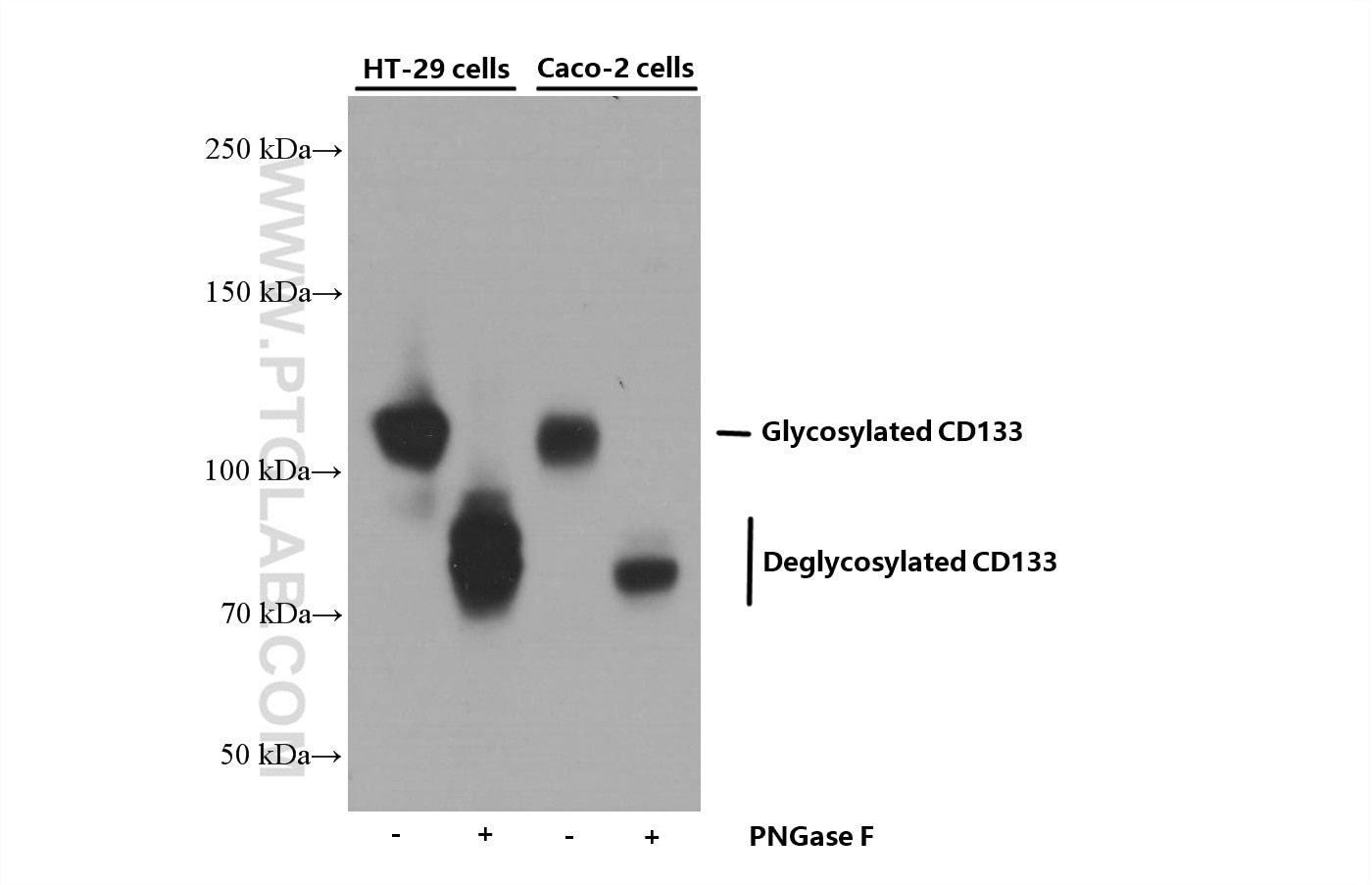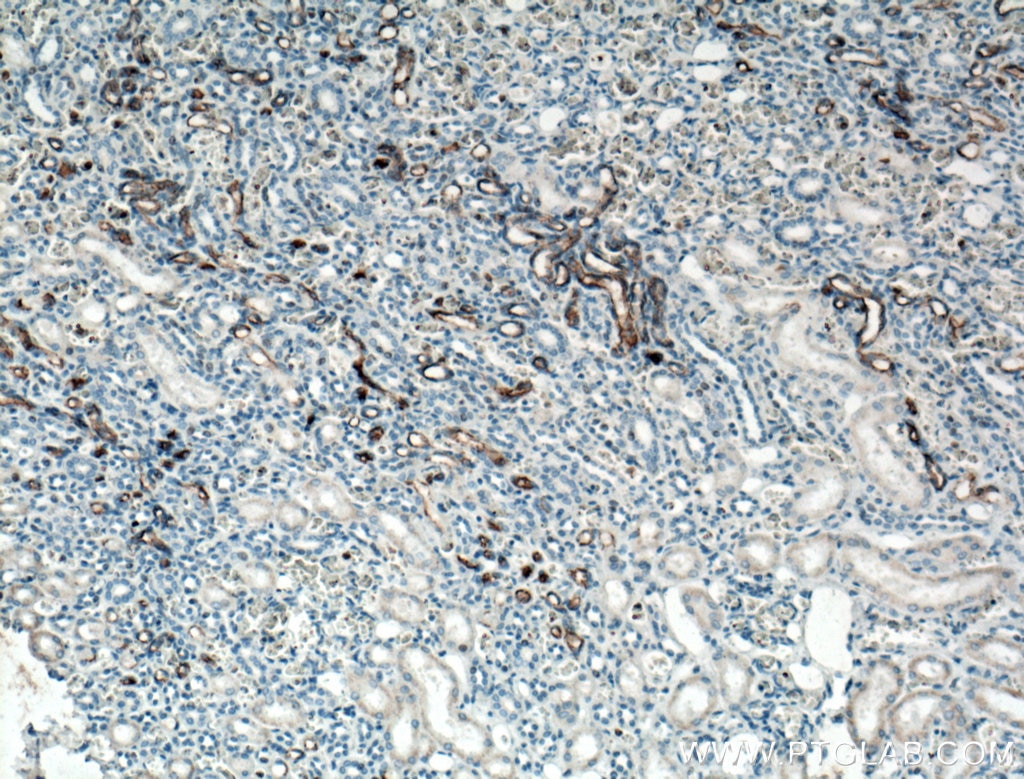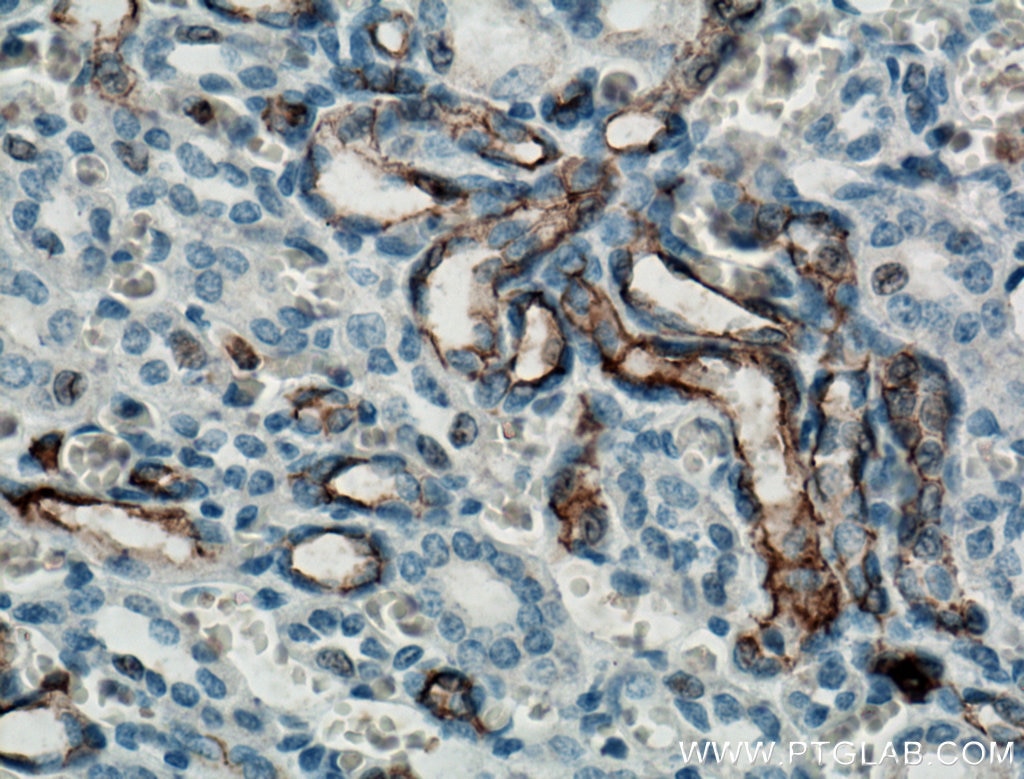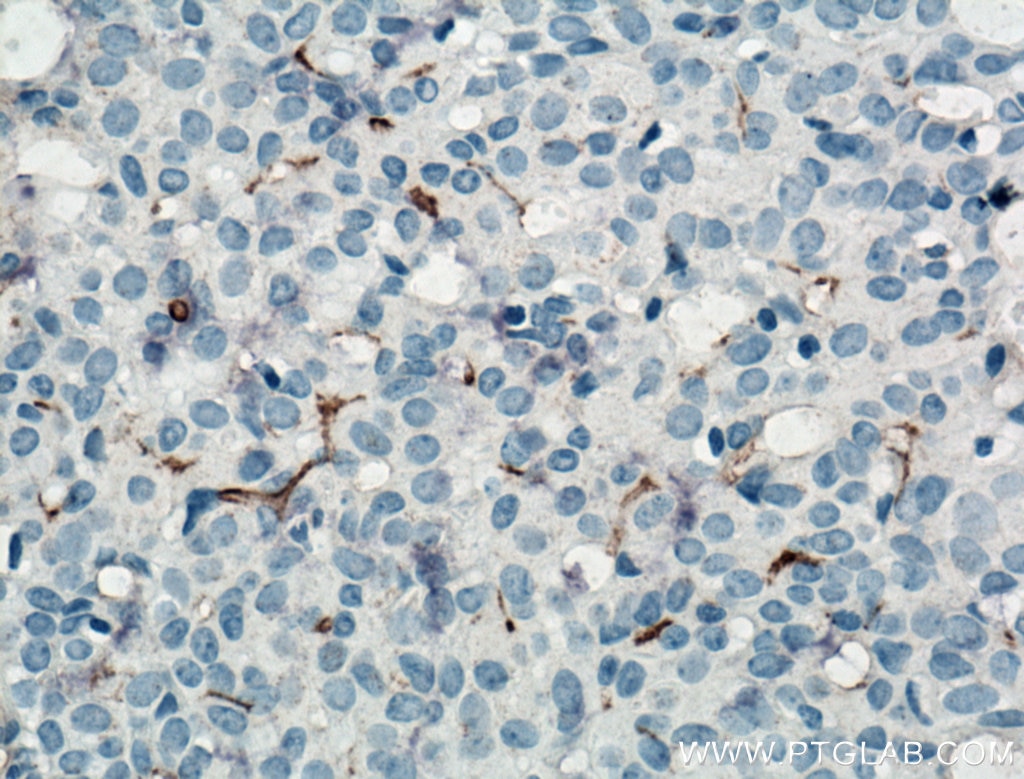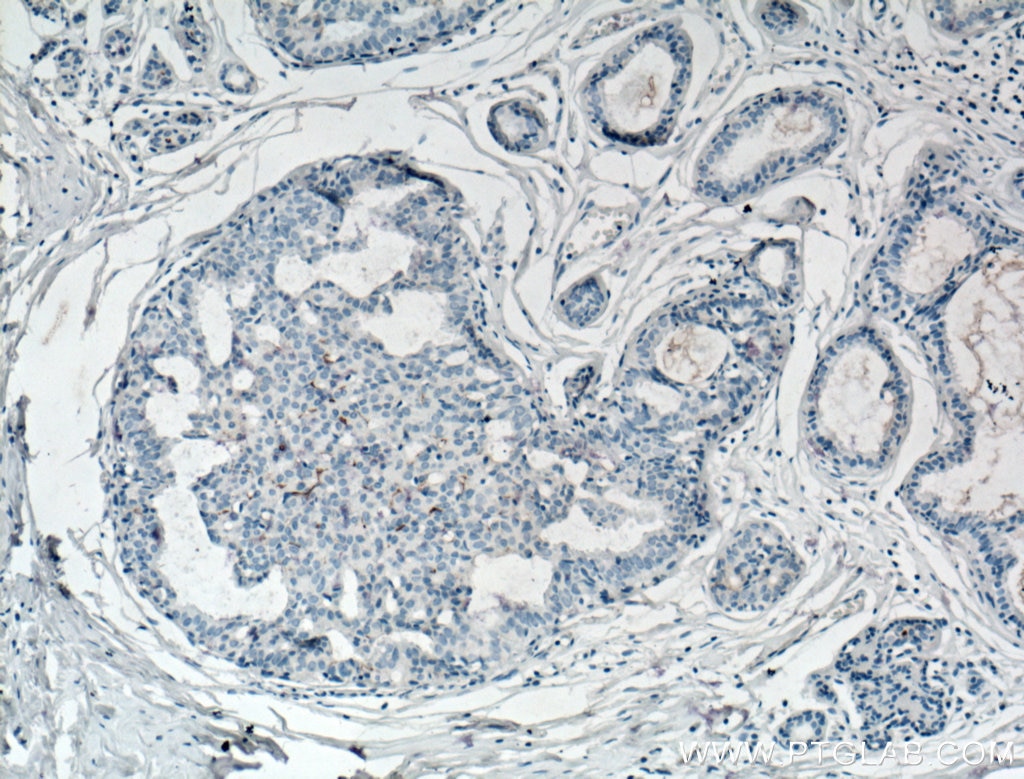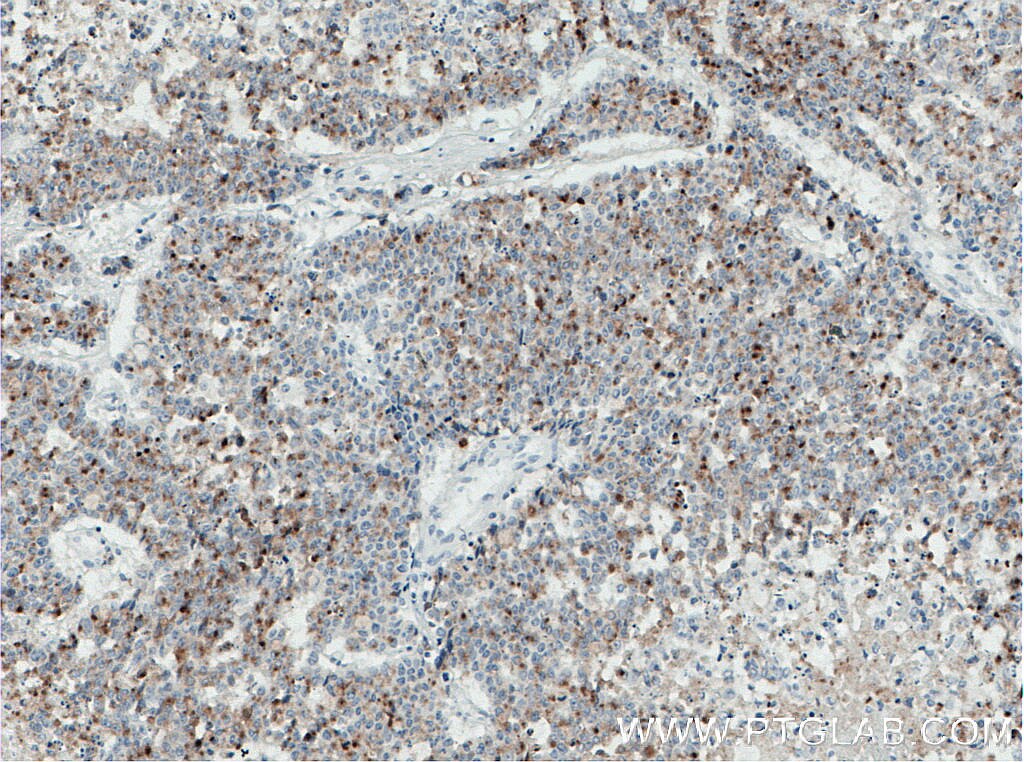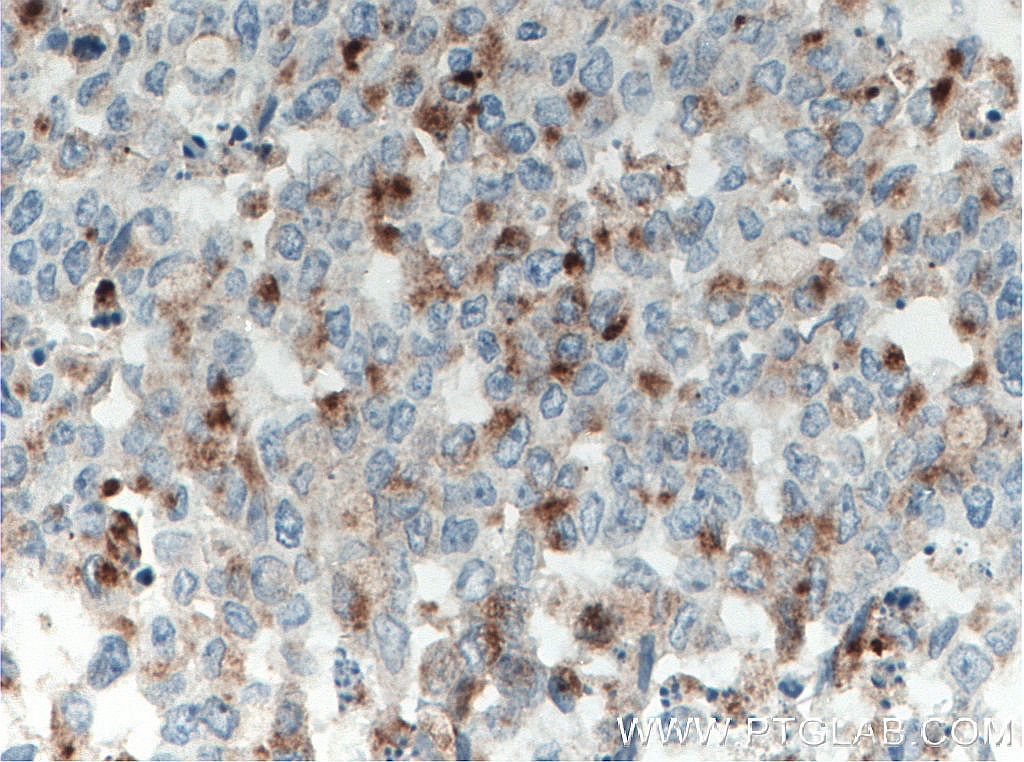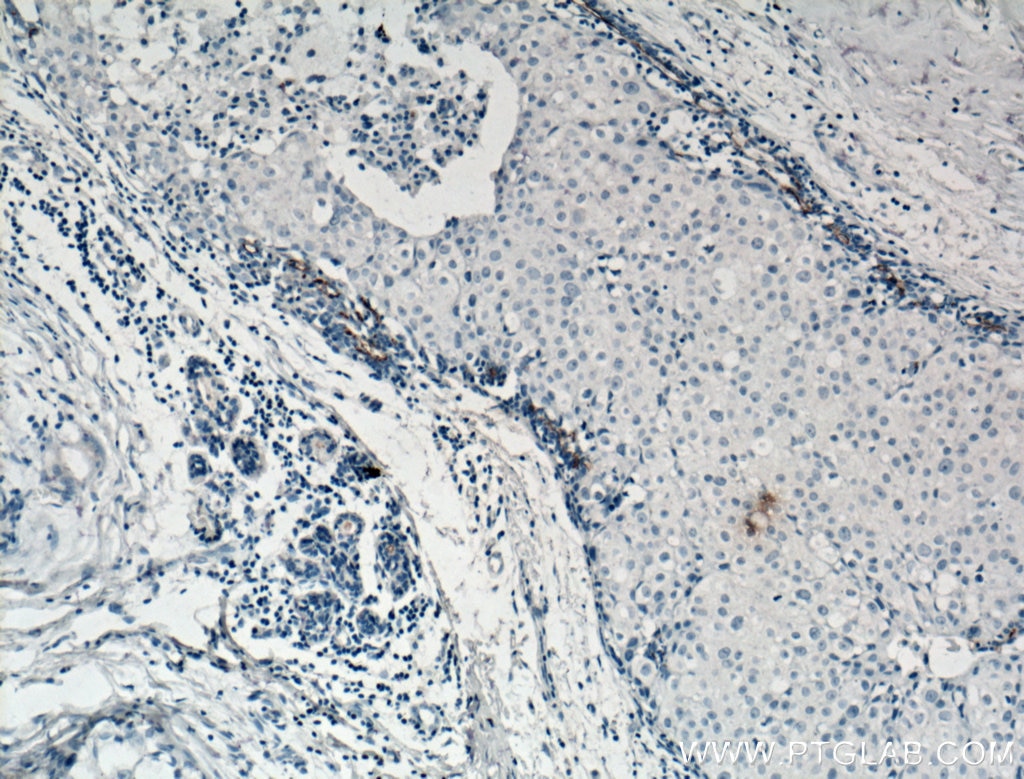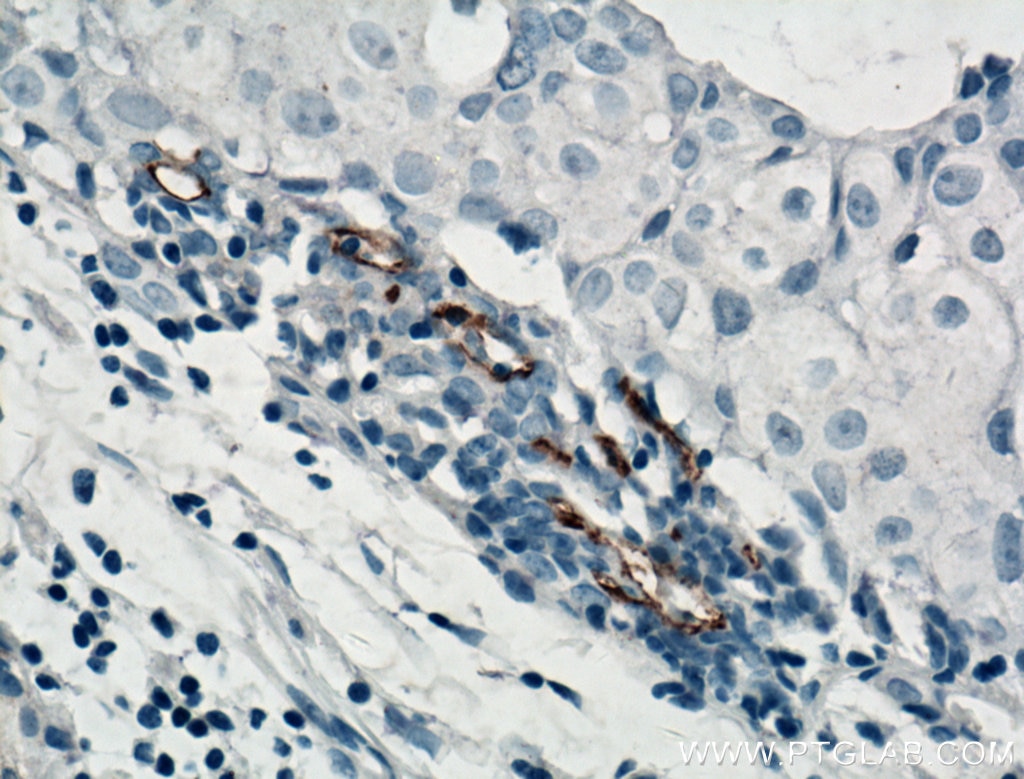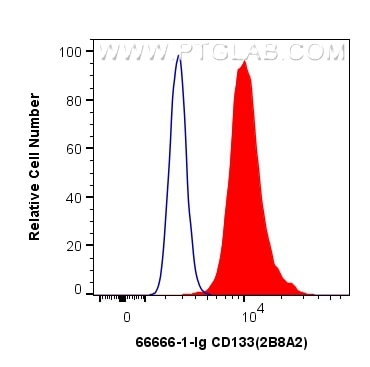Anticorps Monoclonal anti-CD133
CD133 Monoclonal Antibody for FC, IHC, WB, ELISA
Hôte / Isotype
Mouse / IgG1
Réactivité testée
Humain et plus (2)
Applications
WB, IHC, IF, FC, ELISA
Conjugaison
Non conjugué
CloneNo.
2B8A2
N° de cat : 66666-1-Ig
Synonymes
Galerie de données de validation
Applications testées
| Résultats positifs en WB | cellules HT-29, cellules Caco-2 |
| Résultats positifs en IHC | tissu rénal humain, tissu de cancer du côlon humain, tissu de cancer du sein humain il est suggéré de démasquer l'antigène avec un tampon de TE buffer pH 9.0; (*) À défaut, 'le démasquage de l'antigène peut être 'effectué avec un tampon citrate pH 6,0. |
| Résultats positifs en cytométrie | cellules HT-29, |
Dilution recommandée
| Application | Dilution |
|---|---|
| Western Blot (WB) | WB : 1:2000-1:10000 |
| Immunohistochimie (IHC) | IHC : 1:500-1:2000 |
| Flow Cytometry (FC) | FC : 0.40 ug per 10^6 cells in a 100 µl suspension |
| It is recommended that this reagent should be titrated in each testing system to obtain optimal results. | |
| Sample-dependent, check data in validation data gallery | |
Applications publiées
| WB | See 27 publications below |
| IHC | See 10 publications below |
| IF | See 15 publications below |
| ELISA | See 1 publications below |
Informations sur le produit
66666-1-Ig cible CD133 dans les applications de WB, IHC, IF, FC, ELISA et montre une réactivité avec des échantillons Humain
| Réactivité | Humain |
| Réactivité citée | rat, Humain, souris |
| Hôte / Isotype | Mouse / IgG1 |
| Clonalité | Monoclonal |
| Type | Anticorps |
| Immunogène | CD133 Protéine recombinante Ag13327 |
| Nom complet | prominin 1 |
| Masse moléculaire calculée | 97 kDa |
| Poids moléculaire observé | 115 kDa, 80-90 kDa |
| Numéro d’acquisition GenBank | BC012089 |
| Symbole du gène | PROM1 |
| Identification du gène (NCBI) | 8842 |
| Conjugaison | Non conjugué |
| Forme | Liquide |
| Méthode de purification | Purification par protéine A |
| Tampon de stockage | PBS avec azoture de sodium à 0,02 % et glycérol à 50 % pH 7,3 |
| Conditions de stockage | Stocker à -20°C. Stable pendant un an après l'expédition. L'aliquotage n'est pas nécessaire pour le stockage à -20oC Les 20ul contiennent 0,1% de BSA. |
Informations générales
CD133, also known as PROM1 (prominin-1) or AC133, belongs to the prominin family. CD133 is a transmembrane glycoprotein with an NH2-terminal extracellular domain, five transmembrane loops and a cytoplasmic tail. The expression of CD133 has been reported in hematopoietic stem cells, endothelial progenitor cells, neuronal and glial stem cells, suggesting the potential role of CD133 as a cell surface marker of adult stem cells. CD133 has also been reported as a marker of cancer stem cells in various human tumors. CD133 is a highly glycosylated protein with an apparent molecular weight of 115-120 kDa. After the treatment of the lysates with glycosidase, CD133 shifted to a protein with an apparent molecular weight of 80-90 kDa (PMID: 23150174; 20068153).
Protocole
| Product Specific Protocols | |
|---|---|
| WB protocol for CD133 antibody 66666-1-Ig | Download protocol |
| IHC protocol for CD133 antibody 66666-1-Ig | Download protocol |
| FC protocol for CD133 antibody 66666-1-Ig | Download protocol |
| Standard Protocols | |
|---|---|
| Click here to view our Standard Protocols |
Publications
| Species | Application | Title |
|---|---|---|
J Exp Clin Cancer Res ISG15 and ISGylation modulates cancer stem cell-like characteristics in promoting tumor growth of anaplastic thyroid carcinoma | ||
Mol Ther Oncolytics ROS/KRAS/AMPK Signaling Contributes to Gemcitabine-Induced Stem-like Cell Properties in Pancreatic Cancer. | ||
Pharmacol Res Sinomenine hydrochloride suppresses the stemness of breast cancer stem cells by inhibiting Wnt signaling pathway through down-regulation of WNT10B. | ||
Int J Mol Sci Promoter Methylation of Cancer Stem Cell Surface Markers as an Epigenetic Biomarker for Prognosis of Oral Squamous Cell Carcinoma | ||
Int J Mol Sci Cell-Surface GRP78-Targeted Chimeric Antigen Receptor T Cells Eliminate Lung Cancer Tumor Xenografts |
Avis
The reviews below have been submitted by verified Proteintech customers who received an incentive forproviding their feedback.
FH Udesh (Verified Customer) (08-16-2023) | Worked well in WB at 1:1000
|
